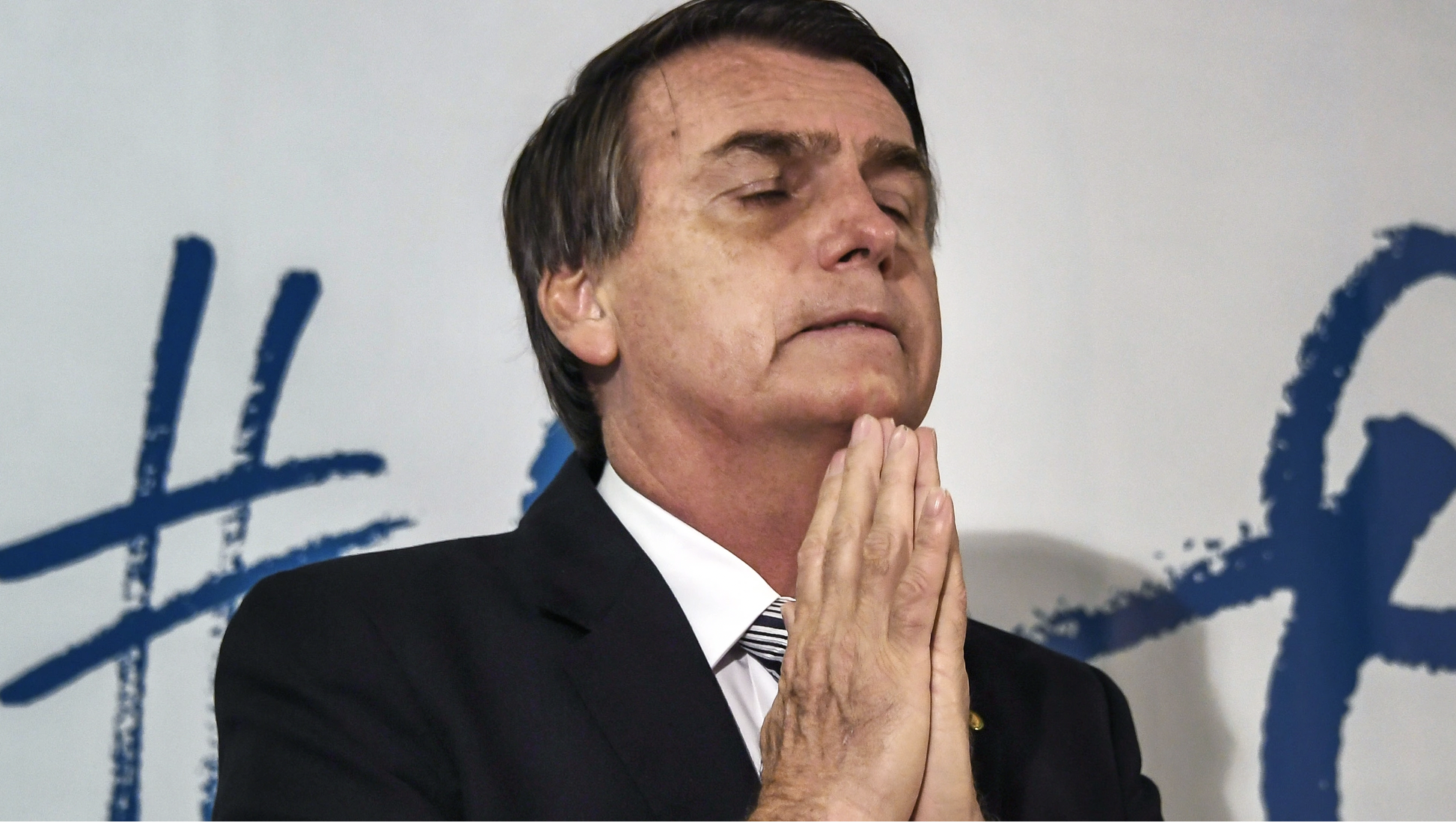
In the last few years, we have seen the rise of authoritarian populist leaders, who have gained power with large support coming from Evangelical Christians. We saw this occur in the United States during Donald Trump’s presidency; however, this is not the only place where it is occurring it has also been occurring in Europe and Latin America.
Brazil has the biggest population of Catholics in the world, in the last few decades the population of evangelicals in the country has increased as people began to convert. According to The Economist it is estimated that by 2030 the number of evangelicals in Brazil will surpass the number of practicing Catholics. A key aspect of Bolsonaro’s win in the 2018 election was that he appealed to evangelicals. He shared similar conservative views on topics like abortion and homosexuality. Bolsonaro focused his campaign on the idea that once elected he would bring back “traditional family values”.
When viewing Bolsonaro’s campaign ads one of the messages that were constantly repeated in it was putting God and Brazil first. Surprisingly this is a very similar message to what former president Donald Trump put forward during his campaign and presidency which was the idea of putting America first and “making it great again”. During the 2016 presidential election, Trump had 81% of evangelical voters supporting him and in 2020 the numbers dropped a bit but still were high at about 75%. Like Bolsonaro, Trump earned support from his evangelical supporter by expressing similar conservative views as them when it came to topics like abortion and homosexuality.
In a study by Lifeway Research, they asked evangelical voters in the United States what were the characteristic they looked for in a candidate when deciding whom to vote for. The personal character of the candidates was not a big factor when it came to them deciding whom to vote for but things like improving the economy, national security, and stance on abortion. During and even before his presidency we heard Trump make racist, homophobic, and even misogynistic comments, but this did not stop evangelicals from voting for him.
A similar thing occurred in Brazil with Bolsonaro his supporters pushed aside his racist, homophobic, and misogynistic comments and instead voted for his conservative ideology, his promise to be hard on crime and to improve the country’s economy. Another factor that helped lead to Bolsonaro’s win was the mistrust that the country began to have with Brazil’s Workers’ Party. The Workers’ Party in Brazil held political control for the longest time from January 2003 until 2016. In the last decade, the Workers’ Party had found many of it politicians like president Lula da Silva and Dilma Rousseff involved in some kind of corruption scandal. Not only that but the Workers’ Party left-leaning ideologies did not please evangelicals who believed that it is causing more harm to the country and its people. Evangelicals believed that the Workers’ Party’s plan to legalize abortion, promote diversity, and provide a curriculum to children that deals with stopping homophobia, is against the Bible and would confuse children.
In the upcoming 2022 presidential election, we are curious to see if Bolsonaro is going to once again be again to win re-election with evangelical support. Bolsonaro has lost many of his supporters due to his poor handling of the COVID=19 pandemic and keeping the promises that he made during his campaign. With increasing levels in Brazil we are not sure if evangelical voter support will be provide the advantage that Bolsonaro needs to win former president Lula da Silvia. In a Los Angeles Times article, some evangelicals stated that they will vote for Bolsonaro no matter what his opinions or policies are because they know Lula and the Workers’ Party’s liberal views towards topics like the LGBQ community and abortion and they cannot vote for him because it does not represent their values. Lula has come out since and stated that he is religious and in his personal life he is not a supporter of abortion, however, he stated that if you are the president of a republic, you should protect women’s rights. Other Evangelicals are stepping back and showing their support for Lula instead because they believe that he has similar views to theirs and at the end of the day will be able to fix the economy and help people once again go from poverty to middle class.
Sources:
“Can Brazil Survive Bolsonaro?” YouTube, 4 June 2021, https://youtu.be/f-QVa7Wb6QI.
Accessed 9 June 2022.
Ionova, Ana. “The Battle for the Presidency of Brazil Could Rest on How Evangelicals Vote.” Los
Angeles Times, Los Angeles Times, 28 Mar. 2022, https://www.latimes.com/world-
nation/story/2022-03-28/battle-presidency-brazil-could-depend-evangelicals-
vote?_amp=true.
Pamela MachadoMore about Pamela Machado XNew Internationalist is a lifeline for activists, et
al. “Did Brazil’s Evangelicals Put Jair Bolsonaro into Office?” New Internationalist,
6 Nov. 2018, https://newint.org/features/2018/11/06/did-brazil%E2%80%99s-
evangelicals-put-jair-bolsonaro-office.
“Why White Evangelicals Stuck with Trump.” The University of Chicago Divinity School,
-trump.

It is fascinating to read about the effect that religion can have on electoral politics. Especially in countries that have a ‘separation of church and state’. Single issue voters in both the U.S. and Brazil can bring about disastrous consequences, especially when two historically bigoted individuals can reach the highest public office.